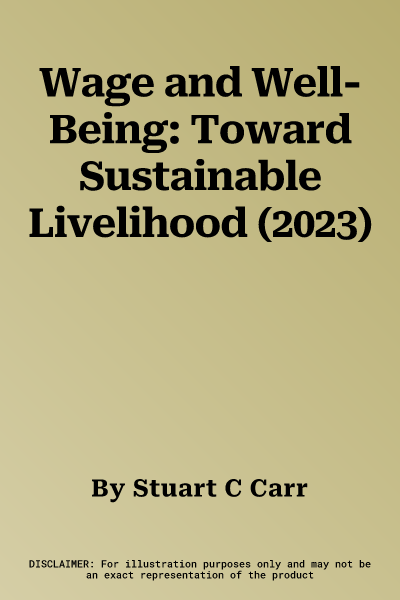Stuart C Carr
(Author)Wage and Well-Being: Toward Sustainable Livelihood (2023)Hardcover - 2023, 2 January 2023

Qty
1
Turbo
Ships in 2 - 3 days
In Stock
Free Delivery
Cash on Delivery
15 Days
Free Returns
Secure Checkout

Print Length
269 pages
Language
English
Publisher
Springer
Date Published
2 Jan 2023
ISBN-10
3031193008
ISBN-13
9783031193002
Description
Product Details
Author:
Book Edition:
2023
Book Format:
Hardcover
Country of Origin:
NL
Date Published:
2 January 2023
Dimensions:
23.39 x
15.6 x
1.75 cm
ISBN-10:
3031193008
ISBN-13:
9783031193002
Language:
English
Location:
Cham
Pages:
269
Publisher:
Weight:
580.6 gm